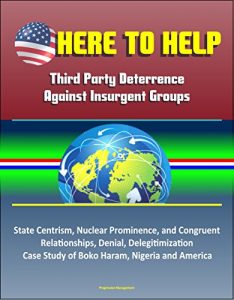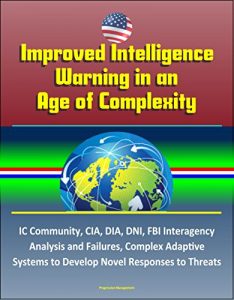This report by the Presidentially-appointed Oil Spill Commission, released in January 2011, provides authoritative, official findings on the causes and consequences of the BP Deepwater Horizon disaster, with proposals for comprehensive reforms of both government and industry practices to overhaul the U.S. approach to drilling safety and greatly reduce the chances of a similar, large scale disaster in the future. I“Our investigation shows that a series of specific and preventable human and engineering failures were the immediate causes of the disaster,” said Commission Co- Chair William K. Reilly. “But, in fact, this disaster was almost the inevitable result of years of industry and government complacency and lack of attention to safety. This was indisputably the case with BP, Transocean, and Halliburton, as well as the government agency charged with regulating offshore drilling—the former Minerals Management Service. As drilling pushes into ever deeper and riskier waters where more of America’s oil lies, only systemic reforms of both government and industry will prevent a similar, future disaster.” Backed up by hundreds of footnotes, the contents include: The Deepwater Horizon, the Macondo Well, and Sudden Death on the Gulf of Mexico; The History of Offshore Oil and Gas in the United States; Oversight—and Oversights—in Regulating; The Macondo Well and the Blowout; Response and Containment; Oiling a Rich Environment: Impacts and Assessment; Recovery and Restoration; Changing Business as Usual; Investing in Safety, Investing in Response, Investing in the Gulf; American Energy Policy and the Future of Offshore Drilling. On April 20, 2010, while working on an exploratory well approximately 50 miles southeast of Venice, Louisiana, the semi-submersible drilling rig Deepwater Horizon experienced an explosion and fire, killing eleven workers. The damaged platform capsized and sank on April 22, 2010. The rig was owned by Transocean and under contract to British Petroleum (BP). Oil threatened natural habitats, wildlife, and fishing along the Gulf coast. The Commission found that the Deepwater Horizon disaster was foreseeable and preventable. Errors and misjudgments by three major oil drilling companies — BP, Halliburton, and Transocean—played key roles in the disaster. Government regulation was ineffective, and failed to keep pace with technology advancements in offshore drilling. The Macondo well blowout was the product of human error, engineering mistakes, and management failures, including the following: Failure adequately to evaluate and manage risk in late-stage well-design decisions. Failure to redesign cement slurry in response to tests that repeatedly demonstrated problems with the slurry design. Failure to recognize that the critical “negative pressure test”—a key test used to determine the integrity of the cement job that seals off the well—signaled that the cement at the well-bottom had failed to seal off hydrocarbons. Failure to recognize that the temporary well-abandonment procedures, which BP changed repeatedly in the days leading up to the blowout, unnecessarily increased the risk of a well blowout. Failure to recognize and respond to early warning signals of the hydrocarbon influx (or “kick”) that eventually became the blowout. Failure to respond appropriately to the blowout once it began, including but not limited to the failure of the rig’s blowout preventer to shut in the well. * This is a privately authored news service and educational publication of Progressive Management. Our publications synthesize official government information with original material - they are not produced by the federal government. They are designed to provide a convenient user-friendly reference work to uniformly present authoritative knowledge that can be rapidly read, reviewed or searched. Vast archives of important data that might otherwise remain inaccessible are available for instant review no matter where you are.
Deep Water: The Gulf Oil Disaster and the Future of Offshore Drilling – The Report of the National Commission on the BP Deepwater Horizon Oil Spill and Offshore Drilling (English Edition)
Sobre
Talvez você seja redirecionado para outro site












